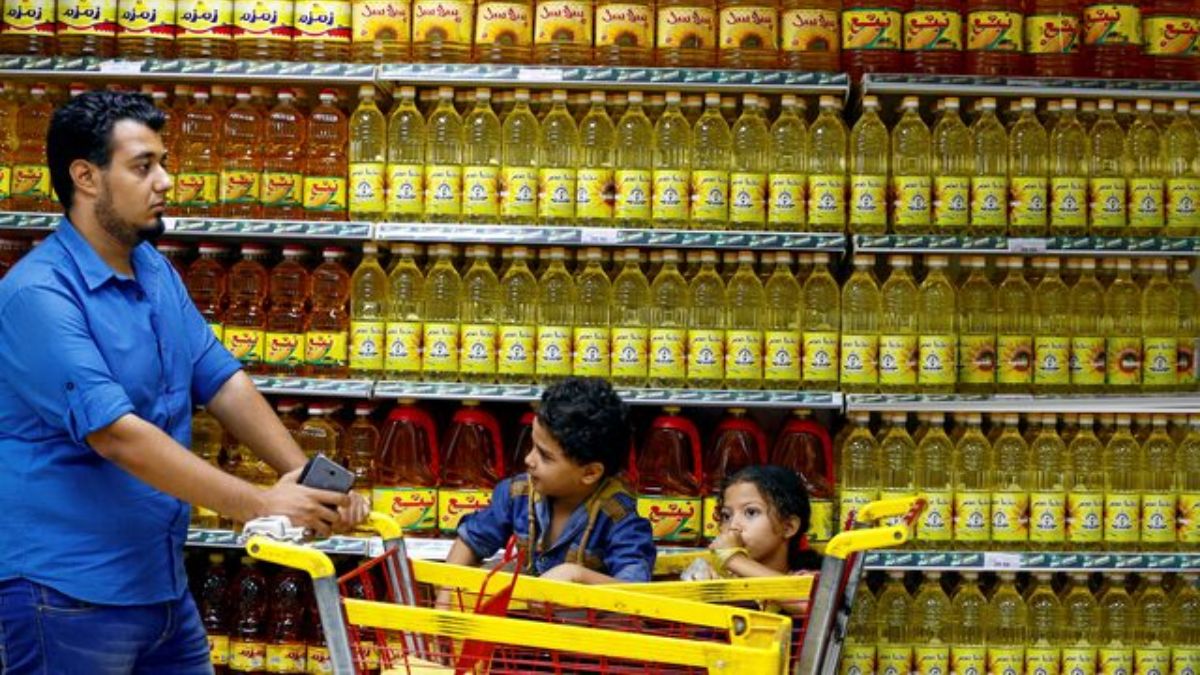Serge Wich, Liverpool John Moores University and
Erik Meijaard, University of Kent
Vegetable oils are everywhere, and almost everyone has an opinion about them. From clever marketing in supermarket aisles to headlines about deforestation, they have become both the heroes and villains of the modern diet. But vegetable oils are vital to our lives and can help to address food insecurity.
Consumers trying to make ethical and
sustainable purchases find themselves at odds with a marketplace
where clickbait often masks reality and reliable information about traceability is often missing or hard to find. A pot of “palm-oil-free” peanut butter does not necessarily disclose what the palm oil was replaced with, or how and where the peanuts were produced.
In a market flooded with controversy and conflicting messages, informed consumption is a challenge. Which oils should we really be using and what’s the truth behind their production?
Consumers are entitled to clear ingredient transparency. More accurate information enables us to make choices that genuinely align with our values.
Our recent
research across
three studies explores how nutrition, sustainability and transparency intersect in the world of vegetable oils.
Few foods illustrate the complexity of our global food system quite like vegetable oils. Used in cooking, processed foods, cosmetics, plastics and biodiesel, the
global demand has quadrupled in 50 years, making vegetable oils a cornerstone of both diets and economies. An estimated
37 per cent of agricultural crop land is used by oil crops, such as soybean, oil palm, rapeseed and sunflower.
Yet, this demand also drives major health and environmental pressures. With 2 billion more mouths to feed in the coming decades, several hundred million hectares of land – ten times the area of the UK – will need to be allocated to vegetable oil production. Decisions about which crops are used and how they are produced will have critical environmental and social consequences.
Don’t fear the fat
“Fat” has long-held
negative connotations. This has led to extreme health advice calling for anything from the total omission of seed oils to eating a stick of butter as a snack or adding a shot of coconut oil to one’s coffee.
Alongside this, alarmist marketing campaigns have painted certain vegetable oils, most notably palm oil, as the agent of mass extinction and deforestation.
But behind every bottle on a supermarket shelf lies a more complex story: a network of farmers, factories and policies that shape not only what we eat but also how land is used and how livelihoods are sustained.
We need to
stop treating dietary fat as a villain. Yes, trans-fats are harmful, but evidence on saturated fats is mixed and context-specific. Frying risks are overlooked and fat replacers are often oversold.
Importantly, a global “fat gap” coexists with obesity – really, some people need more fat in their diet. The idea that some fats are good for you and others aren’t isn’t clear cut.
The consumer blind spot
Claims about the foods we consume can become part of popular discourse. Take
WWF’s 2009 claim that 50 per cent of supermarket products contain palm oil. Is it true now?
Our findings suggest at least not everywhere.
How easily could it be proved to be true then? Ever? It’s hard to tell, without clear historical evidence of how the original claim was made. But has this claim encouraged millions of consumers to avoid palm oil?
Absolutely.
This is not a matter of overturning palm oil’s bad reputation, but one of noting the sheer lack of clarity and transparency in ingredient information. Many food products list only “vegetable oil” without specifying type or origin and sustainability labels are inconsistent and easily manipulated.
This lack of transparency fuels misinformation and prevents consumers from aligning purchases with their values. This fundamentally slows down any efforts from consumers and policymakers to improve sustainability within the food system.
The human dimension: culture and equity
Vegetable oils are more than ingredients. They’re woven into our culture, economies and identity. From palm oil in south-east Asia and west Africa to olive oil in the Mediterranean, their value extends beyond nutrition or environmental metrics.
In an era of rising food insecurity, affordable oils remain a vital source of nutrition and income for millions. Calls to eliminate certain oils can carry hidden social costs, undermining livelihoods in producing regions.
No oil is inherently good or bad.
Rather than asking which oil is best, we should question how our oils are made, who benefits, and which systemic changes truly serve people and the planet.
Ultimately, companies need to disclose sourcing origins and processing methods, and policymakers must mandate labelling that discloses an ingredient’s true environmental and social effects. Only then consumers can know how best to choose a varied mix of traceable oils, without the hype.
Technology such as QR codes and mobile applications can already enable this, and by demanding greater traceability, shoppers can help shift towards fairer and more sustainable food systems.
Serge Wich, Professor of Primate Biology, Liverpool John Moores University and
Erik Meijaard, Honorary Professor of Conservation, University of Kent
This article is republished from
The Conversation under a Creative Commons license. Read the
original article.
End of Article

)

